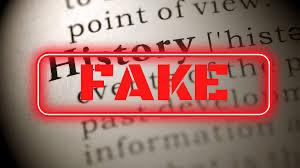We Were Victims of Many Lies
Myths and legends are not education, and when related to social structures are often written to prop up those in power and subject the multitude to support whatever the established untruth is said to be. The words of an ancient philosopher sums it up it this quote. “It is easier to fool a multitude than it is one man.” We live in a country where ignorance rules and many can be easily fooled into following an absurd belief in part because the reading level of the majority of Americans is at the elementary school level. We were raised to listen to outright fabrications for decades and to TV shows and Hollywood movies that were white-only productions. All of the TV shows in the 1950s were almost entirely made up by white screenwriters with white actors. Even history books were filled with lies about Christopher Columbus “discovering America.” The old department stores and movie theaters were white only as were the libraries and hospitals. All of this propaganda, sustained by white supremacy was drilled into the minds of the multitudes and they lived it and embraced it if they benefited from it. Those who were marginalized hated it.
We were told that the Civil War was not about slavery, and made to think that dark skin was a curse. We were subjected to an embroidered arrangement in the sewing basket of white supremacy with each thread of thought connected to the overall invented formulations of nonwhite inferiority. Those people of color were excluded from white privilege and were expected to accept the racial tsunami that soaked this city and country in a flood of oppression and lies. Racist stereotypes were aimed at blacks, native people, and others and whites were expected to accept it or be called an “N” lover in order to provide justifications for the mistreatment of millions of people. Racial stereotypes and symbols that were once common included the “black lawn jockey” in the front yard and the “wooden Indian” in front of a cigar shop. Other items such a salt and pepper shakers, mamie dolls, with racist images on cereal and pancake boxes (Aunt Jemima Pancakes and Uncle Bens Rice) were all forms of hatred. Often one could not even set at a dinner table without some form of hatred being swallowed with the food. Cigarettes and cigars were advertised with the “N” word attached. All of this hatred was transmitted on from generation to generation from the past. These horrible transmissions from slavery and white supremacy attempted to crush the dignity of human worth.
The movie classics are filled with racist stereotypes, from Birth of a Nation (1915) to the 1933 classic King Kong. King Kong is the savage beast from the “dark jungle” that desires a white “civilized” woman. The old racial stereotype of a dark savage beast enamored to a white woman against her will is central to the premise of the movie. Gone with the Wind is probably the most racially motivated film classic produced because it sympathized with the southern slave-owning plantation class of “gentlemen” and their brutal institution of slavery. Many films that we grew up with were filled with servile Black mammies and butlers. Even now, some try to remember a past without the ugliness. In San Antonio, Joskes Department Store had beautiful Christmas decorations and at the same time had a white only restaurant in the basement as did Woolworth and the Kress department stores. Remember the past, for it is still with us and must be remembered.






